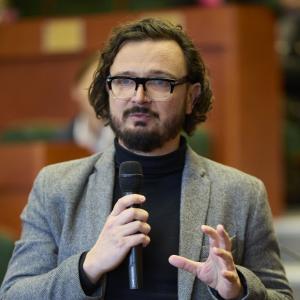From Gateways to Gatekeepers: policy solutions for EU regions bordering Russia

Russia’s war aggression on Ukraine and the subsequent closure of Europe’s eastern borders are profoundly reshaping the economic and social context of the EU regions neighboring Russia. The development strategies and programmes originally designed for these regions are ill-equipped to address the unprecedented economic, social and security challenges triggered by Russia’s war aggression on Ukraine.
Trying to address these challenges, the Warmińsko-Mazurskie Voivodship reached out to the Interreg Europe programme for an interregional policy learning process bringing together the local and regional border territories directly affected by the war.
Concrete opportunities for cooperation and joint investments emerged, for instance, around the regions’ green and bio-based economies (wood clusters), the defense sector and local military presence along the rim, as well as the economic potential of dual-use technologies and infrastructures, such as aviation, drones and cybersecurity.

19 territories and 60 participants
Russia’s attack led to the interruption of long-established cooperation ties, cutting vital supply chains, trade relations and people-to-people contacts. Financially, the war forced the suspension of all cross-border cooperation programmes between the EU and Russia, affecting EUR 300M of allocated EU support.
Consequently, policy reorientation is required at all levels, building on the lived experiences of the local and regional territories directly affected. Following first informal discussions at Interreg Europe’s annual event in Antwerp, the 19 local and regional territories which share borders with the Russian Federation, from Norway to Poland, decided to team up for a moderated policy learning journey on 15 and 16 January 2025 in Olsztyn, the capital of the Warmińsko-Mazurskie Voivodeship.
Under the title “Regio-Silience”, the Interreg Europe Policy Learning Platform brought together more than 60 participants to exchange on their common challenges, discuss them with European and international institutions, and eventually elaborate joint policy recommendations.
The event was organised under the patronage of the Polish presidency of the Council of the European Union.
Several policy areas identified
Throughout two days, focused exchanges in two working groups allowed the participants to identify key common areas for future areas of cooperation:
- Sustainability, resilience and territorial attractiveness (for locals and tourists)
- Economic development, with particular attention to entrepreneurship and SME support
- Research, development and innovation
- Security and civil protection
- Energy and transport
- Culture, youth and local community engagement

This is an unprecedented situation that our regions are facing. And it requires a policy reorientation to adapt to it.
The Interreg Europe Policy Learning Platform, brought in this process all other relevant stakeholders: representatives from the European Commission (DG REGIO), the World Bank, relevant national ministries, as well as the EU programmes ESPON, INTERACT and TESIM Next.
Such broad involvement of partners well reflects the regions’ expectation for an integrated approach, combining local, regional and national policy efforts with closer North-South collaboration between the regions.
Conclusions
In his concluding remarks Emil Walendzik, Deputy Director of the Regional Policy Department of the Warmińsko-Mazurskie Voivodeship, underlined the need for stronger regional resilience. He also shared the general opinion in the room, that a dedicated funding stream is required by the unprecedented situation the regions are facing.
Finally, all the stakeholders agreed that further steps are necessary to deepen the recommendations and implement the discussed short and long-term solutions. The idea of intensifying the exchanges in dedicated “Regio-Silience” working groups emerged as a follow-up activity, making active use of all available EU support mechanisms.